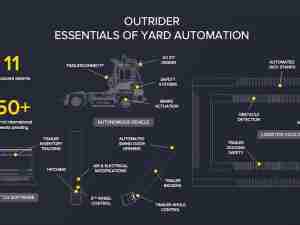According to Allied Market Research, the global fleet management market was valued at around US$19.47 billion in 2020, and is projected to reach a value of $52.50 billion by 2030, displaying a CAGR of 10.6% from 2021 to 2030. The fleet vehicle organization and management industry is one of the most essential and successful sectors within the greater logistics industry, and for good reason. Proper fleet management techniques can reduce fleet-related expenses, improve the efficiency of a business’s assets, and enhance its bottom lines in the long run, says president of MCB Fleet Management Consulting Michael Buck.

Buck says that failing to view company owned vehicles in the context of a fleet, or failing to manage them as such, is an approach that sees businesses leaving money on the table. He recommends taking the time to designate an experienced fleet manager, organize business operations, and follow best practices to minimize unnecessary expenses and risk and maximize the outputs and efficiency of fleets across all major sectors and industries.
Steve Saltzgiver, the business development director for fleet management consultancy firm Mercury & Associates, also notes that a fleet is often a hidden expense in smaller organizations that may not be deemed important until a major litigation, lawsuit, accident, or compliance failure occurs, costing small businesses more money than they have to spare and threatening their reputations. Fleet vehicle organization and management best practices can help business owners to navigate these challenges and minimize the aforementioned risks.
Route Planning Software for Maximum Efficiency
A fleet usually consists of five or more vehicles, including cars, vans, pickup trucks, and other business-use vehicles. Fleet management involves actions such as maintenance, insurance, accident and safety management, vehicle purchasing, titling, and licensing, asset management, upfitting, fuel management, vehicle remarketing and disposal, and route planning and route optimization. According to CCJ Digital, fleet management is crucial when it comes to controlling costs, ensuring the safety of drivers, maintaining driver and user accountability, protecting organizations’ brands and reputations, and maximizing profit margins.
One of the most efficient ways to manage a business fleet successfully is to implement route planning software, says world news publication GroundReport. The news outlet notes that route planning software can use the power of artificial intelligence and custom-designed algorithms to save businesses time, prevent traffic delays and road accidents, reduce their fleets’ fuel consumption and expenses, and improve the safety of vehicles and drivers alike. The latest tools can even be used to warn drivers of obstacles, delays, and hazards on the road in real time, allowing them to navigate potential challenges and reroute proactively according to road conditions and specific times of the day.
Monitoring and Acting On the Data
Fleet management and route planning software is also capable of extrapolating valuable data that organizations can use to further enhance the efficiency of their fleets. Fleet managers should monitor all data points, examine the analytics, and use the data to come up with clear plans of action that improve logistics processes from the ground up.
Todd Ewing at PHCP Pros notes that fleet managers should pay attention to data points like fuel usage and efficiency, stops made per day, maintenance cost per vehicle, harsh driving habits, and payroll to obtain the knowledge they need to make informed decisions about the future management of fleets. Ewing asserts that this approach can increase revenues, protect bottom lines, and maximize businesses’ returns on investments when it comes to their assets on the road.








